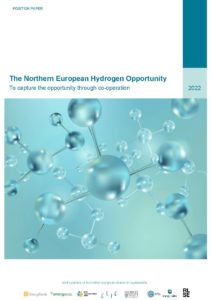In order to capture the new business opportunities related to green electrification, both national and international cooperation are crucial. Coordination and cooperation need to take place across industrial sectors and between public parties such as the regulator, research institutes and universities, and the industries. Coordination and co-operation are needed for the systemic growth of the needed knowhow base and for the alignment of public and private sector actions in the course of the transition.
The planned innovation ecosystem is vast and there is a clear need to facilitate the cooperation between all the stakeholders. The role of CLIC Innovation as the ecosystem orchestrator is to strengthen information exchange within the ecosystem, increase the level of national and international cooperation, make activities more transparent and develop their impact and continuity. The ultimate aim is to generate new business and international exports for Finland and help in combating the climate change.
From the perspective of building and strengthening the needed knowledge base, much effort will be placed on building new international R&D partnerships. For this, the ecosystem will prepare a joint plan for the participation in different international co-operation initiatives such as the European partnerships (BIC, A.SPIRE, Hydrogen and fuel cells), IEA actions, CEM and Mission Innovation. The European partnerships are a good channel to find project partners and also for influencing the European research agendas and, hence, the research topics that get financing. IEA, CEM and MI actions give an opportunity to participate in the global discussions, which supports the joint foresight work and helps for instance forecast the speed of global market development.
From the business perspective, the aim of GreenE2 is to build a versatile ecosystem with actors that complement each other and that represent different parts of the value chains. A complementary innovation ecosystem paves the way for the participants to build partnerships for more focused businesses. With a systemic approach, relevant new partners such as customers and local contractors from the target markets will be sought, contacted and engaged in the ecosystem activities in accordance with the needs and expectations of the already active ecosystem participants. At the beginning, the target market will be the European market. In this task, CLIC and Flexens will collaborate intensively.
Northern European Alliance for Sustainable Energy
During the first phase of the ecosystem, international cooperation with Northern European networks was kicked off with an alliance for sustainable energy. The alliance published a position paper on green hydrogen opportunities in Northern Europe, and additionally submitted an EU project application for a large-scale hydrogen valley.

